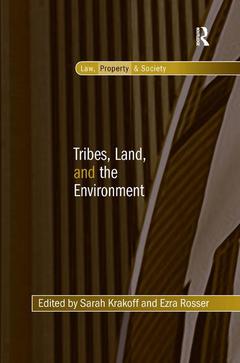Tribes, Land, and the Environment Law, Property and Society Series
Auteur : Krakoff Sarah
Coordonnateur : Rosser Ezra

Date de parution : 04-2012
15.6x23.4 cm
Date de parution : 10-2016
15.6x23.4 cm
Thèmes de Tribes, Land, and the Environment :
Mots-clés :
Green Corn; Sea Water; Tepary Beans; tribal; UNDRIP Article; sovereignty; Navajo Nation; Sarah A; Krakoff; Hanta Virus; Alex Tallchief Skibine; Treaty Rights; James M; Grijalva; Energy Resources; Dean B; Suagee; Great Lakes Water Quality Agreement; Elizabeth Ann Kronk; Conservation Easements; Sara C; Bronin; Green Corn Dance; Allison M; Dussias; Conservation Easement Holders; Jacqueline Phelan Hand; Great Lakes Basin; Jessica Owley; Federal Trust Responsibility; Kirsten Matoy Carlson; Tribal Sovereignty; Robert T; Coulter; Indian Country; Ghislain Otis; Indian Law Resource Center; Federal Indian Law; Tribal Governments; Alaska Native Nations; Energy Efficiency; Environmental Justice Claims; Native Nations; Alaska Native; Klamath Tribes


